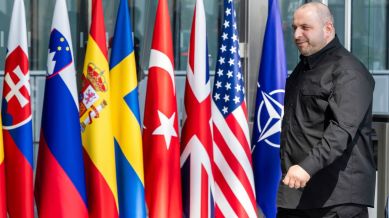Ukraine’s ‘Coalition of the Willing’ Advances Force Planning Despite Uncertainty Over US Support
Amid growing uncertainty surrounding continued U.S. support for Ukraine, a determined group of European nations—informally dubbed the “coalition of the willing”—is pressing forward with detailed force planning to bolster Ukraine’s defense against Russia. This group, composed primarily of NATO and EU members, is moving swiftly to map out future military assistance and deployment strategies, independent of Washington’s wavering commitment.
The urgency behind the coalition’s actions comes as political divisions in the U.S. stall additional military aid packages for Ukraine. While the Biden administration remains publicly committed to Ukraine’s sovereignty, domestic political gridlock—particularly in Congress—has delayed funding, raising serious concerns among European allies about long-term American involvement in the conflict.
In response, countries including the United Kingdom, France, Poland, Germany, and the Nordic states have accelerated joint planning initiatives to provide Ukraine with critical military resources. This includes not only advanced weapons systems and ammunition but also strategic coordination on training, logistics, and potentially even troop deployments to allied territories near the conflict zone.
According to European defense officials, the coalition is not waiting for a unified NATO position or U.S. consensus. Instead, they are proactively crafting contingency plans to ensure that Ukraine remains equipped and supported on the battlefield in the event of a long-term dip in American engagement.
“The reality is we cannot afford to pause while political processes play out elsewhere,” said a senior European military advisor involved in the planning. “Ukraine’s survival and the stability of Europe are at stake, and we are taking responsibility.”
This force planning initiative represents a broader evolution in how Europe approaches security on the continent. While the United States has long been seen as the central pillar of NATO, the war in Ukraine has catalyzed a shift toward increased European autonomy in defense policy. The coalition of the willing, while not an official military alliance, signifies a coordinated commitment among like-minded nations to act decisively in support of Ukraine, regardless of the broader geopolitical climate.
Analysts believe this move could also signal the emergence of a two-track Western response to the Ukraine conflict—one spearheaded by nations with immediate security concerns in Eastern Europe, and another more cautious approach by countries balancing internal politics and foreign policy fatigue.
Meanwhile, Ukrainian officials have welcomed the coalition’s proactive stance, expressing appreciation for continued support amid an increasingly volatile geopolitical landscape. President Volodymyr Zelenskyy’s government has emphasized that sustained military aid is essential to resist Russian advances and stabilize the front lines.
Despite doubts about Washington’s future role, defense experts argue that the coalition’s force planning could serve as a blueprint for a more flexible and resilient support structure for Ukraine. This strategy prioritizes rapid response capabilities, shared intelligence, and an adaptable logistics framework—elements critical to enduring support in a prolonged conflict.
As the situation evolves, all eyes remain on U.S. lawmakers and the international community to see whether this European-led momentum will continue to grow—or whether American support will reassert itself as a decisive force in Ukraine’s defense.
Stay tuned for continuing coverage on Ukraine’s international backing and developments in Western military cooperation.
Source : Swifteradio.com


